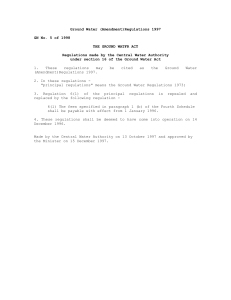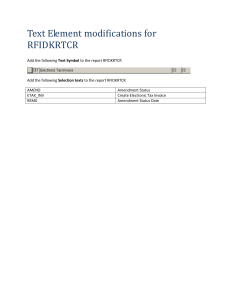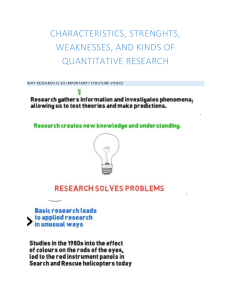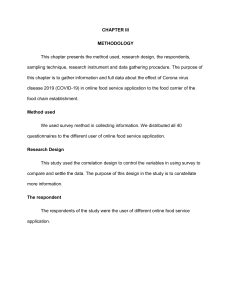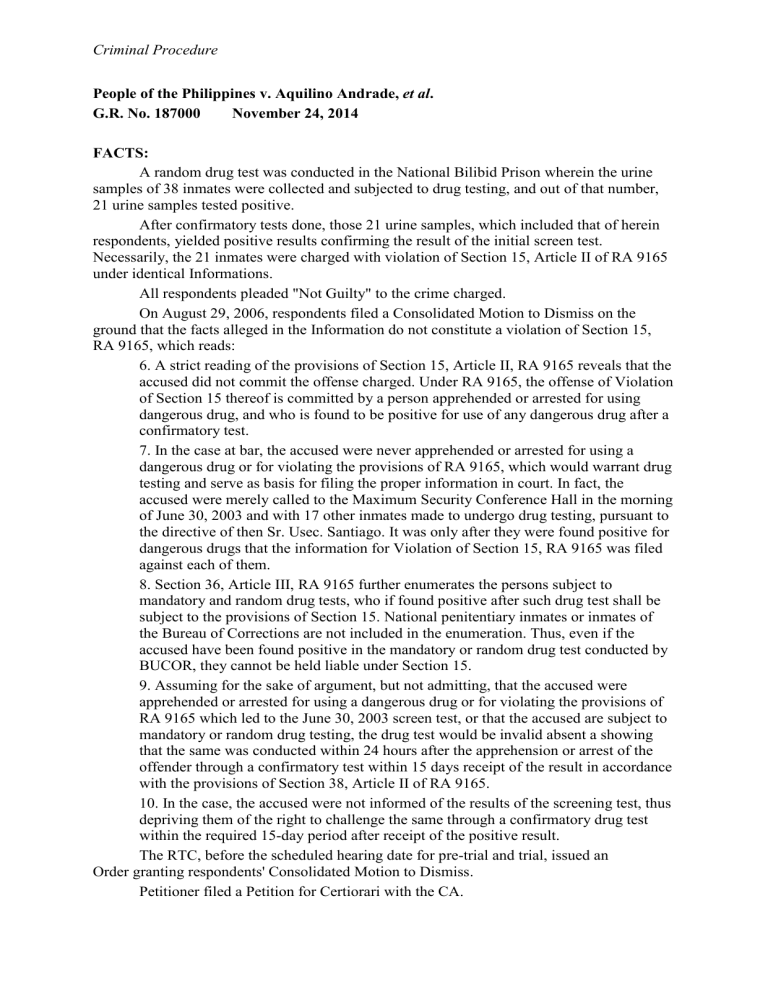
Criminal Procedure People of the Philippines v. Aquilino Andrade, et al. G.R. No. 187000 November 24, 2014 FACTS: A random drug test was conducted in the National Bilibid Prison wherein the urine samples of 38 inmates were collected and subjected to drug testing, and out of that number, 21 urine samples tested positive. After confirmatory tests done, those 21 urine samples, which included that of herein respondents, yielded positive results confirming the result of the initial screen test. Necessarily, the 21 inmates were charged with violation of Section 15, Article II of RA 9165 under identical Informations. All respondents pleaded "Not Guilty" to the crime charged. On August 29, 2006, respondents filed a Consolidated Motion to Dismiss on the ground that the facts alleged in the Information do not constitute a violation of Section 15, RA 9165, which reads: 6. A strict reading of the provisions of Section 15, Article II, RA 9165 reveals that the accused did not commit the offense charged. Under RA 9165, the offense of Violation of Section 15 thereof is committed by a person apprehended or arrested for using dangerous drug, and who is found to be positive for use of any dangerous drug after a confirmatory test. 7. In the case at bar, the accused were never apprehended or arrested for using a dangerous drug or for violating the provisions of RA 9165, which would warrant drug testing and serve as basis for filing the proper information in court. In fact, the accused were merely called to the Maximum Security Conference Hall in the morning of June 30, 2003 and with 17 other inmates made to undergo drug testing, pursuant to the directive of then Sr. Usec. Santiago. It was only after they were found positive for dangerous drugs that the information for Violation of Section 15, RA 9165 was filed against each of them. 8. Section 36, Article III, RA 9165 further enumerates the persons subject to mandatory and random drug tests, who if found positive after such drug test shall be subject to the provisions of Section 15. National penitentiary inmates or inmates of the Bureau of Corrections are not included in the enumeration. Thus, even if the accused have been found positive in the mandatory or random drug test conducted by BUCOR, they cannot be held liable under Section 15. 9. Assuming for the sake of argument, but not admitting, that the accused were apprehended or arrested for using a dangerous drug or for violating the provisions of RA 9165 which led to the June 30, 2003 screen test, or that the accused are subject to mandatory or random drug testing, the drug test would be invalid absent a showing that the same was conducted within 24 hours after the apprehension or arrest of the offender through a confirmatory test within 15 days receipt of the result in accordance with the provisions of Section 38, Article II of RA 9165. 10. In the case, the accused were not informed of the results of the screening test, thus depriving them of the right to challenge the same through a confirmatory drug test within the required 15-day period after receipt of the positive result. The RTC, before the scheduled hearing date for pre-trial and trial, issued an Order granting respondents' Consolidated Motion to Dismiss. Petitioner filed a Petition for Certiorari with the CA. Criminal Procedure The CA, in its Decision dated May 29, 2008, affirmed the trial court's Order. ISSUE: Whether the Court of Appeals erred when it held that private respondents may not be held liable for violation of Section 15, Article II of RA 9165 RULING: The ground relied upon by respondents in their "Motion to Dismiss," which is, that the facts alleged in the Information do not constitute an offense, is actually one of the grounds provided under a Motion to Quash in Section 3 (a), Rule 117 of the Revised Rules of Criminal Procedure. It must be emphasized that respondents herein filed their Motion after they have been arraigned. Under ordinary circumstances, such motion may no longer be allowed after arraignment because their failure to raise any ground of a motion to quash before they plead is deemed a waiver of any of their objections. Section 9, Rule 117 of the Rules of Court provides: Sec. 9. Failure to Move to Quash or to Allege Any Ground Therefor. - The failure of the accused to assert any ground of a motion to quash before he pleads to the complaint or information, either because he did not file a motion to quash or failed to allege the same in said motion, shall be deemed a waiver of any objections except those based on the grounds provided for in paragraphs (a),(b), (g), and (i) of Section 3 of this Rule. However, since the ground asserted by respondents is one of the exceptions provided under the above-provision, the timeliness of the filing is inconsequential. The mistake lies in the RTC's dismissal of the case. The RTC judge went beyond her authority when she dismissed the cases based on lack of probable cause and not on the ground raised by respondents, to wit: Section 2, Rule 117 of the Revised Rules on Criminal Procedure plainly states that in a motion to quash, the court shall not consider any ground other than those stated in the motion, except lack of jurisdiction over the offense charged. In the present case, what the respondents claim in their motion to quash is that the facts alleged in the Informations do not constitute an offense and not lack of probable cause as ruled by the RTC judge. The RTC judge's determination of probable cause should have been only limited prior to the issuance of a warrant of arrest and not after the arraignment. Once the information has been filed, the judge shall then "personally evaluate the resolution of the prosecutor and its supporting evidence" to determine whether there is probable cause to issue a warrant of arrest. At this stage, a judicial determination of probable cause exists. Considering that the RTC has already found probable cause, it should have denied the motion to quash and allowed the prosecution to present its evidence and wait for a demurrer to evidence to be filed by respondents, if they opt to, or allowed the prosecution to amend the Information and in the meantime suspend the proceedings until the amendment of the Information without dismissing the case. Section 4, Rule 117 of the Revised Rules of Criminal Procedure clearly states that if the ground based upon is that "the facts charged do not constitute an offense," the prosecution shall be given by the court an opportunity to correct the defect by amendment, thus: Criminal Procedure Section 4. Amendment of the complaint or information. - If the motion to quash is based on an alleged defect of the complaint or information which can be cured by amendment, the court shall order that an amendment be made. If it is based on the ground that the facts charged do not constitute an offense, the prosecution shall be given by the court an opportunity to correct the defect by amendment. The motion shall be granted if the prosecution fails to make the amendment, or the complaint or information still suffers from the same defect despite the amendment. If the defect in the information is curable by amendment, the motion to quash shall be denied and the prosecution shall be ordered to file an amended information. Generally, the fact that the allegations in the information do not constitute an offense, or that the information does not conform substantially to the prescribed form, are defects curable by amendment. Corollary to this rule, the court should give the prosecution an opportunity to amend the information. In the present case, the RTC judge outrightly dismissed the cases without giving the prosecution an opportunity to amend the defect in the Informations. In People v. Talao Perez, this Court ruled that, "...even granting that the information in question is defective, as pointed out by the accused, it appearing that the defects thereof can be cured by amendment, the lower court should not have dismissed the case but should have ordered the Fiscal to amend the information." When there is any doubt about the sufficiency of the complaint or information, the court should direct its amendment or that a new information befiled, and save the necessity of appealing the case on technical grounds when the complaint might easily be amended.
